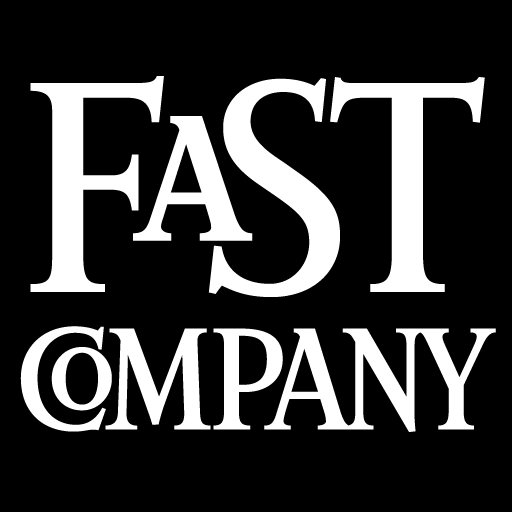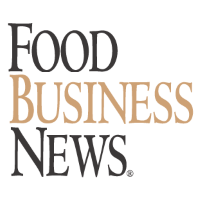
Transparency, E-Commerce, and Educating Shoppers About "Organic" are of Paramount Importance
The Food Marketing Institute recently released its 2017 U.S. Grocery Shopper Trends report, and after surveying more than 2,000 adults, it compiled some fascinating information about where they shop, how they shop, and what they value the most.
Here are the key takeaways:
* Several of the top claims that shoppers are looking for:
Low sugar: 33%
Low sodium: 32%
Natural: 24%
Non-GMO: 23%
Certified organic: 16%
Free-range: 13%
Cage-free: 12%
Fair trade: 8%
Gluten-free: 7%
* The “fresh” category (fruits, vegetables, meat, seafood) remains critical, and grocers are the most trusted allies for meeting wellness needs.
* Co-shopping is the new norm, with men taking on an ever-greater responsibility for shopping.
* Weekly spending on groceries has moved up to $110 per week, an all-time high, but grocery trips per week per shopper is 1.5, down from 2.2 in 2005. This is most likely a result of an increase in shared responsibilities.
* E-commerce has passed a tipping point during the past year, with large numbers of Millennials suddenly more comfortable with shopping online, albeit still confined to a limited breadth of food products. The biggest online categories are food snacks, baby food, pet food, and cleaning products.
In 2017, 43% of Millennials said they shop online for groceries at least occasionally, with much of the growth coming among those who shop online either “fairly often” or “all of the time.” This number is up by a whopping 50%, compared to 2016.
Overall, “online-only” shopping is now used frequently by 10% of shoppers, up from 7% in 2016.
* Digital tools matter: Millennials favor social tools (Facebook, Instagram) while Gen X-ers prefer “direct/utilitarian” tools such as digital coupons.
Over half of the respondents are “somewhat likely” to make the effort to use a QR code. This is heavily skewed by Millennials, and they want information beyond ingredients and nutrients, such as details about ingredient and product sourcing, production methods, and animal welfare concerns.
* This points to a broader theme of Millennial shoppers, who especially want to support companies that share their values and prioritize a broader good — treating their employees, animals, and the environment in a benevolent way.
* A major theme is transparency, which is not only critical to building trust but it helps to forge an emotional connection with shoppers.
In practice, consumers do not always use the word “transparency” itself. Instead, they talk about “openness,” “honesty,” things being “public,” “clear,” “visible” and “not hidden.”
* Here are two quotes from the report that were quite telling:
“Food companies aren’t interested in being transparent. They’re interested in giving the appearance of transparency.” — Kevin, 32
“I would like to support a business that is a good corporate citizen. If there is a kind of story or humanizing aspect to a particular business, that helps earn some trust and lets me know that, ‘hey, we’re not just a food company.’” — Alex, 36
MY TAKE
For organic food companies, this report should spur the following questions.
– Is our marketing effectively conveying how transparent we are? How could we do it better?
– Are we doing a good job of telling our story? Do our customers understand how we are working to make the world a better place? Are we truly building deeper connections with shoppers?
– Are we dedicating enough resources to e-commerce and how does our online strategy capitalize on the shopping habits and preferences of Millennials?
As an industry, we should have a much greater sense of urgency to educate consumers about what “organic” truly means. And this is exactly what John Foraker, the former President of Annie’s, alluded to in my interview with him two weeks ago when he talked about the key challenges that organic faces.
The fact that shoppers continue to look for “natural” and “Non-GMO” claims more than “organic” not only means that they are purchasing inferior products, but also that our industry is giving away market share, simply because we have not made education a priority.
If this trends report is telling us anything, it is that we can no longer afford to ignore this issue. Financially, it is costing us.
 |
Have a great day! 
Max Goldberg, Founder |
Quick Hits
* Last week, the National Organic Standards Board held a webinar about hydroponics. Nothing substantial was agreed upon, as usual.
* Congrats to Barnana founder Caue Suplicy and his team. The company’s banana snacks are now being rolled out to 8,000 Starbucks locations.
* Plenty of news in the restaurant world.
* The Plant Café Organic in San Francisco has become the first Platinum REAL Certified restaurant in the nation. Meanwhile, The Organic Coup will be opening up in Levi’s Stadium, home of the San Francisco 49ers.
* With its first restaurant already open in Indiana, Primal Kitchen will be setting up shop in Culver City, CA. Close by, SunLife Organic will be opening at the new village on campus at USC.
* For those of you not going to Expo East, mark your calendars. Rodale Institute in Pennsylvania will be holding its 9th Annual Organic Apple Festival on September 16th.
* But for those of you who are going to Expo East, the Just One Drop documentary will be screened on September 13th at 6pm. This film explores “the history, the mystery and the promise” of homeopathy.
Weekly News Summaries

Succession Planning for Organic Farms is Becoming a Real Issue
By Jonathan Kauffman
Not only is finding the next generation of organic farmers a challenge, but financing the purchase of existing organic farms is a serious obstacle as well.
The Injustice of Pesticides Contaminating Nearby Organic Farms
By Sara Novak
Organic farms routinely get contaminated from crop dusters spraying toxic chemicals from above. Help may be on the way, but it is years away.

Instacart Signs a Deal with Aldi, a Competitor to One of Its Investors and Partners
By Chase Purdy
Instacart just signed a deal with Aldi. This is sure to have caused ire with Whole Foods, who is not only a partner but an investor in the company as well.

Glyphosate Residue-Free Certification is Gaining Traction with Brands
By Jenna Blumenfeld
Despite the fact that some companies may be feeling "certification fatigue," Glyphosate Residue-Free is taking hold, largely because glyphosate remains such a ubiquitous problem.

Monsanto's CTO on How the Organic Industry Scares People Away from a Healthy Diet
By Robert Fraley
People should drop any illusions they have about the Huffington Post being a friend to organic. After allowing ridiculous op-ed pieces such as this one, Huff Po is looking very similar to Forbes.com.

Pesticides are Preventing Bumble Bees from Laying Eggs
By Dan Charles
Scientists at Royal Holloway University of London found that bumble bee queens exposed to neonicotinoid pesticides were 26% less likely to lay eggs, compared to those that were not exposed to the chemicals.

Internal Documents Reveal that Monsanto Knew of Roundup's Cancer Risks
In court documents released last week, it was revealed that Monsanto's own scientists knew of the potential cancer risks that Roundup posed.

Founder and Co-CEO Gunnar Lovelace on the Ascension of Thrive Market
By Jeff Wells
Thrive Market has become the leading e-commerce platform in the natural and organic space, and its founder discusses the company's key to growth, its private label strategy, and why educational content is so important.

REBBL's CEO Sheryl O'Loughlin on Creating Trust Between Founders and Investors
By Sheryl O'Loughlin and Duane Primozich
Sheryl O'Loughlin, CEO of REBBL, one of hottest organic brands in the industry, and Duane Primozich, one of the main investors in REBBL, explain how being vulnerable with each other has made for a stronger partnership.

Veggie Noodle Co. Receives Investment from Encore Consumer Capital
By Rebekah Schouten
Austin-based Veggie Noodle Co., an organic spiralized vegetable company, has received a minority investment from Encore Consumer Capital, and the funds will be used to expand capacity.
The material in this newsletter is copyrighted and may be reprinted by permission only. All requests must be in writing. Please use our contact form to request republication rights.
Newsletter Archive
Quick Hits
* Last week, the National Organic Standards Board held a webinar about hydroponics. Nothing substantial was agreed upon, as usual.
* Congrats to Barnana founder Caue Suplicy and his team. The company’s banana snacks are now being rolled out to 8,000 Starbucks locations.
* Plenty of news in the restaurant world.
* The Plant Café Organic in San Francisco has become the first Platinum REAL Certified restaurant in the nation. Meanwhile, The Organic Coup will be opening up in Levi’s Stadium, home of the San Francisco 49ers.
* With its first restaurant already open in Indiana, Primal Kitchen will be setting up shop in Culver City, CA. Close by, SunLife Organic will be opening at the new village on campus at USC.
* For those of you not going to Expo East, mark your calendars. Rodale Institute in Pennsylvania will be holding its 9th Annual Organic Apple Festival on September 16th.
* But for those of you who are going to Expo East, the Just One Drop documentary will be screened on September 13th at 6pm. This film explores “the history, the mystery and the promise” of homeopathy.
